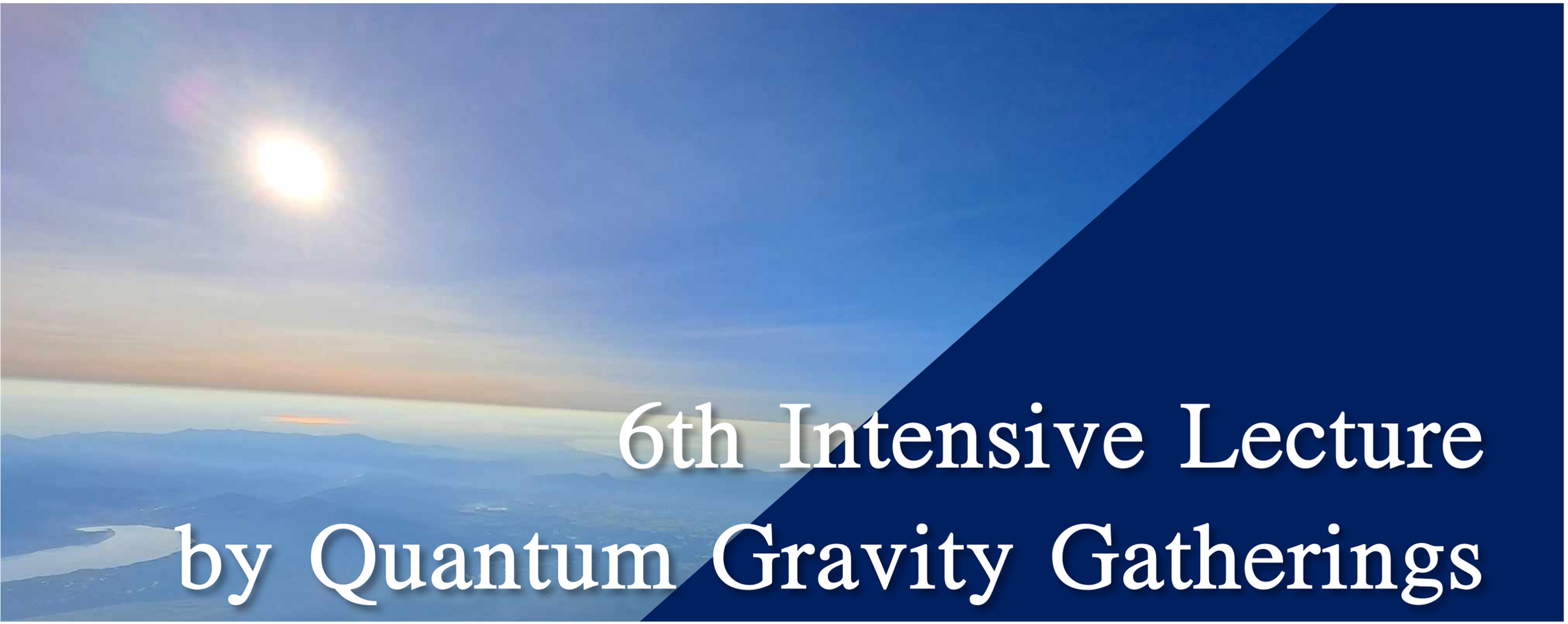
6th Intensive Lecture by Quantum Gravity Gatherings
2023 November 20, 21 @ RIKEN, Wako, Japan
This is the sixth event by the Quantum Gravity Gatherings (QGG) Study Group at RIKEN iTHEMS. For this event we have invited Professor Ryusuke Hamazaki from RIKEN, to deliver pedagogical lectures on the thermalization in isolated quantum systems. This topic describes how a non-equilibrium quantum state relaxes to thermal equilibrium through a unitary time evolution. This theme has applications not only in statistical physics but also in many areas of physics. In particular, in the context of quantum gravity, understanding thermalization via a unitary time evolution is anticipated to be a key to resolving the information loss problem of black holes. In addition, the notion of typicality and thermalization is important in the AdS/CFT correspondence to understand black hole physics. We expect this event to provide insights to researchers in related fields. Ryusuke Hamazaki is a leading expert in this subject. It is our enormous pleasure to have the opportunity to learn from him the idea of thermalization and its applications related to realistic systems.
This intensive lecture series is designed to be an interactive event. The intensive talk will be given in a face-to-face blackboard style (in English, no online streaming) to encourage informal and lively Q&A discussions. The program will also include short talk sessions, where participants can present a 5-minute talk on a topic of their choice, which could be about their own research, reviews of specific works, or future study interests.
Registration
Registration Form- The registration deadline for all participants is 3rd November (Fri). However, if the number of registered participants exceeds the capacity of the event room, we may need to close registration prior to the specified deadline.
- Participants are strongly encouraged to give a short talk on any topic of their choice (self-introduction, research, review of some works, what they want to research in the future, etc.). This interactive session is designed to foster a lively and engaging environment, facilitating increased communication and knowledge exchange among all participants.
- We can partially support the expenses for junior participants. Note that
- giving a short talk is mandatory for students who will attend a banquet or receive support.
- we have a limited number of accommodations available for participants residing in remote areas. Please note that the check-in date is fixed for November 19 and the check-out date is set for November 21, and unfortunately, these dates cannot be changed.
Intensive Talk
Ryusuke Hamazaki (RIKEN)
Introduction to thermalization in isolated quantum systems
How does a non-equilibrium quantum state relax to the thermal equilibrium via a unitary time evolution? This problem, related to the foundation of equilibrium statistical mechanics, is called a problem of thermalization in isolated quantum systems. While this problem has a long history dating back to von Neumann's seminal work in 1929, it has gathered much attention in recent years thanks to the experimental observation of real-time dynamics in isolated quantum many-body systems.
In this lecture, I will introduce the basics of thermalization in isolated quantum systems. Starting with the definition of thermal equilibrium for pure states, I will explain some important notions, such as typicality and equilibration. Then, I will talk about the eigenstate thermalization hypothesis (ETH), which is one of the most important statements in the problem of thermalization. The ETH states that every energy eigenstate behaves thermally for local observables and justifies thermalization for any initial states. I will also address what kind of systems satisfy (or break) the ETH and thermalization, introducing the notion of integrability, many-body scars, and Hilbert-space fragmentation. I will then show our recent results claiming that thermalization phenomena are universal in nature, i.e., most realistic systems thermalize in a long time.
Program (updated)
November 2009:00 ~ 09:15 Registration and Reception
09:15 ~ 10:45 Lecture 1
10:45 ~ 11:00 Coffee break
11:00 ~ 12:00 Lecture 2
12:00 ~ 13:15 Lunch
13:15 ~ 14:45 Lecture 3
14:45 ~ 16:45 Coffee break (iTHEMS colloquium)
16:45 ~ 18:15 Short talk session (short talk program)
18:30 ~ 20:00 Banquet
November 21
09:30 ~ 09:45 Reception
09:45 ~ 11:45 Lecture 4
11:45 ~ 13:30 Lunch
13:30 ~ 15:00 Lecture 5
15:00 ~ 16:00 Coffee break
16:00 ~ 17:30 Lecture 6
- Updated program: The daily schedule starts earlier to incorporate the iTHEMS colloquium into the program on the first day. The participation of the colloquium is welcome but not mandatory.
Place
435-437 Seminar Room, 4F of Main Research Building, RIKEN Wako CampusOrganizers
Che-Yu Chen (iTHEMS)Yuta Hamada (KEK)
Puttarak Jai-akson (iTHEMS)
Christy Kelly (iTHEMS)
Ryo Namba (iTHEMS)
Toshifumi Noumi (The University of Tokyo)
Naritaka Oshita (Kyoto Hakubi/iTHEMS)
Sotaro Sugishita (Kyoto University)
Yuki Yokokura (iTHEMS)
Contact: Che-Yu Chen che-yu.chen@riken.jp / Sotaro Sugishita sotaro@gauge.scphys.kyoto-u.ac.jp
Sponsors
